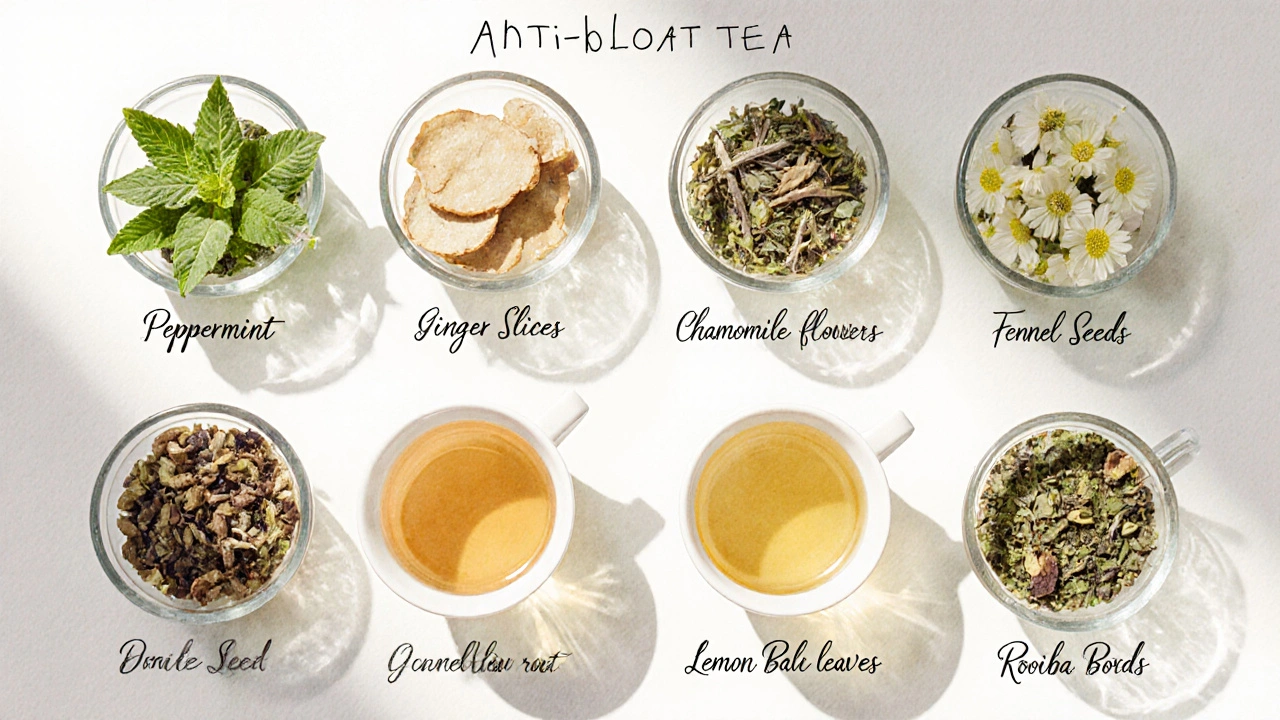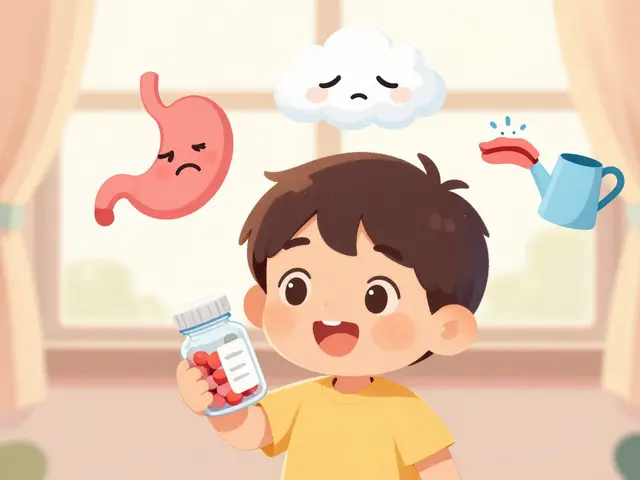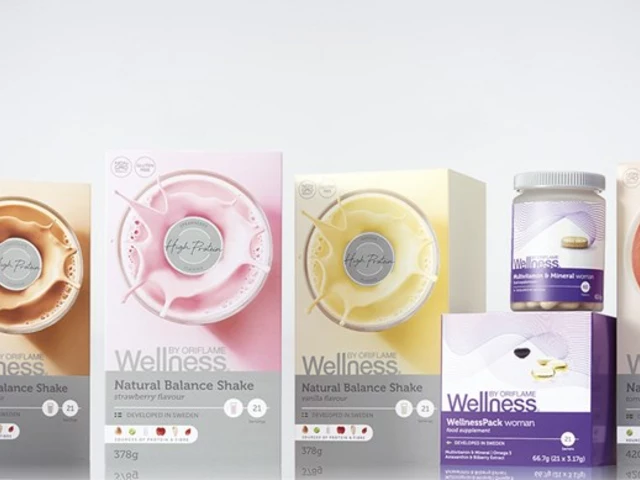Bloating Relief Tea Selector
Recommended Tea
Brewing Instructions
Why This Works
After a big lunch or a heavy dinner, that uncomfortable sense of fullness and gas can turn a good day into a miserable one. The good news? A warm cup of the right tea can ease the pressure, calm the gut, and let you get back to feeling normal-all without prescription meds.
Key Takeaways
- Eight specific teas have proven antispasmodic or carminative properties that target bloating.
- Each tea works best when brewed at the right temperature and steeped for the correct time.
- Pairing tea with mindful eating habits (slow chewing, avoiding carbonated drinks) maximizes the relief.
- Most of these teas are easy to find in supermarkets or online, and they’re safe for daily use.
- Quick brewing guides let you prepare a soothing cup in under five minutes.
Below is a deep‑dive into the eight top choices, why they work, and how to brew them for the strongest anti‑bloat effect.
How Tea Helps Digestive Discomfort
Tea isn’t just a comforting beverage; many varieties contain compounds that relax the smooth muscles of the intestines, reduce gas formation, or stimulate bile flow. When you sip a warm infusion, the heat itself improves blood circulation to the digestive tract, helping food move along more smoothly. The result is less pressure, fewer cramps, and a quicker return to normal.
Peppermint Tea
Peppermint is a cooling herb whose menthol oil acts as a natural antispasmodic, easing intestinal cramps and reducing gas. It’s the go‑to choice for many gastroenterologists when treating functional dyspeasia. To get the most benefit, use 1‑2 teaspoons of dried leaves per cup, steep in water at 95°C for 5‑7 minutes, then sip slowly.
Ginger Tea
Ginger is a rhizome packed with gingerol, a compound that speeds gastric emptying and reduces nausea. Brew 1 teaspoon of fresh grated ginger or ½ teaspoon of dried pieces in boiling water for 8‑10 minutes. The warm, spicy flavor also stimulates digestive enzymes, making it perfect after a protein‑heavy meal.

Chamomile Tea
Chamomile is a flower known for its gentle soothing properties and mild antispasmodic effects. Use 2 teaspoons of dried blossoms, steep at 90°C for 4‑6 minutes. Its calming effect on the nervous system can also reduce stress‑related bloating.
Fennel Tea
Fennel is a seed that contains anethole, a compound that relaxes intestinal muscles and helps release trapped gas. Crushed seeds (½ teaspoon) boiled for 7‑9 minutes make a sweet‑licorice flavored tea that works especially well after beans or cruciferous vegetables.
Dandelion Root Tea
Dandelion Root is a bitter herb that stimulates bile production and improves liver function, both of which aid digestion. Steep 1 tablespoon of roasted root in near‑boiling water for 10‑12 minutes. The earthy flavor pairs nicely with a teaspoon of honey if you need a touch of sweetness.
Green Tea
Green Tea is a leaf tea rich in catechins that enhance gut motility and have mild anti‑inflammatory properties. Use 1 teaspoon of loose leaf, steep at 80°C for 2‑3 minutes. Because it contains caffeine, choose a decaf version if you’re sensitive to stimulants after dinner.
Lemon Balm Tea
Lemon Balm is a herb from the mint family that calms the nervous system and reduces excess gas production. Steep 1‑2 teaspoons of dried leaves at 90°C for 5 minutes. Its bright citrus aroma makes it a pleasant choice for evening meals.

Rooibos Tea
Rooibos is a South African red bush tea that is caffeine‑free and contains antioxidants that support gut health. Brew 1 tablespoon of leaves in boiling water for 4‑6 minutes. Its smooth, nutty flavor is a good alternative for those who avoid caffeine altogether.
Comparison of the Top Bloating‑Relief Teas
| Tea | Main Antispasmodic Compound | Best Brewing Temp | Typical Steep Time | Flavor Profile | Ideal For |
|---|---|---|---|---|---|
| Peppermint | Menthol | 95°C | 5‑7 min | Cooling, minty | Quick gas relief |
| Ginger | Gingerol | 100°C | 8‑10 min | Spicy, warming | After heavy, protein‑rich meals |
| Chamomile | Apigenin | 90°C | 4‑6 min | Floral, gentle | Stress‑related bloating |
| Fennel | Anethole | 100°C | 7‑9 min | Licorice‑sweet | Beans, cruciferous veggies |
| Dandelion Root | Taraxasterol | 95°C | 10‑12 min | Earthy, bitter | Liver support, oily foods |
| Green Tea | Catechins | 80°C | 2‑3 min | Fresh, grassy | Caffeine‑tolerant diners |
| Lemon Balm | Rosmarinic Acid | 90°C | 5 min | Citrusy, sweet | Evening meals, anxiety‑related bloating |
| Rooibos | Aspalathin | 100°C | 4‑6 min | Nutty, smooth | Caffeine‑free option |
Practical Tips for Maximum Relief
- Drink your tea slowly, allowing each sip to coat the stomach lining.
- Avoid adding cream or heavy sugar; they can add to the feeling of fullness.
- Combine tea with a short walk (5‑10 minutes) to further stimulate digestion.
- If you’re prone to acid reflux, sip ginger or chamomile rather than peppermint, which can relax the LES.
- Store loose‑leaf tea in an airtight container away from light to preserve volatile oils.
When to Seek Professional Help
Tea can calm occasional bloating, but persistent pain, unexplained weight loss, or blood in stool signal a deeper issue. In those cases, schedule an appointment with a gastroenterologist to rule out conditions such as IBS, gallstones, or food intolerances.
Frequently Asked Questions
Can I drink these teas every day?
Yes, most of the listed teas are safe for daily consumption. Just watch the caffeine in green tea if you’re sensitive, and rotate herbs to avoid over‑exposure to any single compound.
Is peppermint safe for everyone?
Peppermint can relax the lower esophageal sphincter, so people with gastro‑esophageal reflux disease (GERD) should choose ginger or chamomile instead.
Should I use fresh herbs or dried tea bags?
Both work, but fresh herbs often contain higher levels of active oils. If you use bags, look for ones that list 100% pure herb without fillers.
Can I combine two teas together?
Yes, blends like peppermint‑ginger or chamomile‑lemon balm are popular. Keep the total herb amount to about 2 teaspoons per cup to avoid bitterness.
What if I’m pregnant?
Most of the teas are considered safe, but limit ginger to 1‑2 cups per day and avoid excessive peppermint if you have a history of heartburn. Always check with your healthcare provider.
With the right cup in hand, you can turn post‑meal bloat from a nightmare into a quick, natural fix. Whether you choose the cooling snap of peppermint, the spicy kick of ginger, or the gentle hug of chamomile, each brew brings a blend of science‑backed benefits and comforting ritual. Enjoy the relief, and let your gut breathe again.




12 Comments
kenneth strachan
Wow, I was about to explode after that Thanksgiving feast, but the peppermint tea saved my life! I mean, who knew a simple leaf could be a superhero for your gut? The cooling menthol was like a winter breeze inside my belly, and I felt the pressure melt away. I definitely recommend sipping it slowly, like a secret ritual, right after the big meal. Trust me, you'll feel much better, definatly.
Mandy Mehalko
Hey, that's awesome! It's great to hear peppermint working its magic. I always tell my friends to try a warm cup after dinner, it really helps them feel lighter. Keep spreading the tea love, and stay relaxed!
Bryan Kopp
I think these teas are fine, but Americans should try more exotic blends.
Patrick Vande Ven
The selection presented in the article aligns well with current gastroenterological research. Peppermint, containing menthol, exhibits antispasmodic activity by inhibiting calcium influx in smooth muscle cells. Ginger's gingerol accelerates gastric emptying via stimulation of motilin receptors. Chamomile's apigenin modulates GABAergic pathways, providing a calming effect on the enteric nervous system. Fennel's anethole relaxes intestinal musculature, facilitating gas expulsion. Dandelion root's taraxasterol supports bile secretion, thereby enhancing lipid digestion. Lastly, rooibos offers antioxidative aspalathin, which may protect mucosal integrity without caffeine stimulation.
Tim Giles
Delving deeper into the phytochemical mechanisms, one observes that menthol, the primary constituent of peppermint, acts on transient receptor potential melastatin 8 (TRPM8) channels, inducing a cooling sensation that concurrently reduces visceral hypersensitivity. Gingerol, the pungent molecule in ginger, not only stimulates gastric motility but also exerts anti-inflammatory effects by inhibiting cyclooxygenase-2 (COX-2) pathways, thereby mitigating mucosal irritation. Apigenin, found abundantly in chamomile, binds to benzodiazepine receptors, promoting a tranquilizing effect on the central nervous system, which indirectly alleviates stress‑related gastrointestinal dysmotility. Anethole, present in fennel seeds, is a potent antispasmodic that modulates smooth muscle tone by interfering with acetylcholine release at neuromuscular junctions. Taraxasterol, the bitter component of dandelion root, enhances choleretic activity, facilitating the emulsification of dietary fats and improving their subsequent absorption. Catechins in green tea, particularly epigallocatechin gallate (EGCG), stimulate intestinal peristalsis and possess antimicrobial properties that balance gut microbiota composition. Rosmarinic acid, the active agent in lemon balm, exerts anxiolytic effects via inhibition of monoamine oxidase, thereby reducing cortisol‑induced bloating. Aspalathin, a unique flavonoid in rooibos, offers antioxidant protection to the gastrointestinal epithelium without the stimulant effects of caffeine, making it suitable for evening consumption. Moreover, the thermal component of hot tea enhances mesenteric blood flow, promoting efficient nutrient transport and waste elimination. The synergistic interaction between these bioactive compounds and the heat of the infusion creates a multifaceted approach to alleviating post‑prandial discomfort. It is also noteworthy that the recommended steeping times ensure optimal extraction of these phytochemicals while preventing bitterness or degradation of delicate constituents. Consistent daily consumption, within the parameters outlined, can contribute to long‑term gut health and reduced incidence of functional dyspepsia. Finally, integrating these teas with lifestyle modifications, such as mindful eating and light physical activity, maximizes therapeutic outcomes and supports overall digestive wellbeing.
Peter Jones
I love how the article breaks down each tea’s strength and brewing tip. It’s clear, practical, and easy to follow. I’ve started a little routine of sipping ginger after big meals, and I already notice less heaviness. Thanks for the solid guide!
Gerard Parker
Great point! If you want to maximize the benefits, use filtered water at the right temperature – not boiling for green tea, as it can destroy catechins. Also, consider pairing the tea with a short walk; light activity further stimulates peristalsis. For those with GERD, swap peppermint for chamomile to avoid relaxing the LES. Lastly, don’t over‑steep any tea; bitterness can actually stress the gut. Keep these tips in mind and you’ll get the most out of each cup.
Thomas Burke
Tea after meals is a game changer. Just brew it right and chill.
Debbie Frapp
Absolutely! Just a quick reminder: always store your loose‑leaf tea in an airtight container to preserve those essential oils. Also, a gentle stir while steeping can help release the flavors more evenly. If you ever wonder why some teas taste flat, it’s usually because they’ve been exposed to humidity.
Michelle Abbott
Honestly, most of this is just hype-lots of buzzwords like "antispasmodic" and "carminative" that sound impressive but don’t change the fact that tea is just tea.
Heather Jackson
i totally get the drama of a bloated belly after a huge pizza night. the tea ssssugests are actually quite helpfull-just dont forget the mint!
Akshay Pure
While the article is comprehensive, it fails to acknowledge that true digestive health stems from a balanced diet, not merely from herbal infusions. The reliance on anecdotal claims about "menthol" or "gingerol" feels superficial when juxtaposed with the nuanced complexities of gut microbiota. Moreover, the recommendation to replace coffee with green tea overlooks individual metabolic responses. A more scholarly approach would incorporate recent microbiome studies alongside these traditional suggestions.